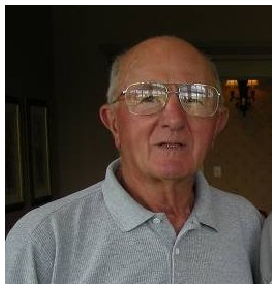July 2007 Article Wild Cards Archives:
Tennis Server
|

 |
by Tony Severino Certified Instructor 4A Professional Tennis Registry
Robbie holds up his racquet to volley the tossed foam Speed Balls.
One, two, three, four in a row! Wow! Eyes light up, a Hi-Five and
a smile as wide as Main Street.
Why? You see Robbie is intellectually disabled, and this is a Special
Olympics demonstration during the Professional Tennis Registry's International Tennis Symposium held at Hilton Head Island every
February.
The ball feeder is no less than Dennis Van der Meer, President
and Founder of the Professional Tennis Registry (PTR). Says Dennis, "Special Olympics is one of the best and most rewarding programs
PTR has ever become involved with. We are proud of our partnership with Special Olympics and the effect it can have on the quality of life
for people with disabilities."
The Special Olympics began in 1968 at the home of Eunice Kennedy Shriver as an off shoot of the Joseph P. Kennedy Jr. Foundation, founded in 1946 in honor of Joe Jr., killed in World War II on a secret mission over Germany. Tennis was introduced to the Special Olympics in 1987 and by 2007 there were over 18,000 persons competing in Special Olympics tennis.
Today Special Olympics Inc. is an international organization dedicated to helping individuals with intellectual disabilities become physically fit, productive and respected members of society through sports training and competition.
Dr. Glenn Roswal is the Tennis Technical Delegate for Special Olympics, Inc. He has been involved for over 30 years with Special Olympics, and was instrumental in having PTR become the Official Tennis Training Partner for Special Olympics.
On another court next to Dennis, Adam Gard'ner is having his group clap their hands as the ball bounces and then catching it. He moves down the line clapping with each one of the group. This personal attention is rewarded with a big smile, as wide as Main Street. He returns it.
Adam flew in from China where he is Director of Tennis at the Shanghai Racquet Club. Adam and his staff are actively engaged with tennis for Special Olympics China.
China lends an international flavor to this presentation, but there are Special Olympics programs in 150 countries around the world. Of the 2.25 million Special Olympics athletes, 18,000 are tennis players. Amazing!
This year Adam will have his hands full as China hosts the 2007 Special Olympics World Summer Games in Shanghai, October 2 thru 11. Tennis events will include Singles, Doubles and Unified Sports Doubles where athletes with intellectual disabilities are teamed with those without. This provides more challenge to athletes with higher abilities.
For athletes with lower ability levels there are individual skills competitions like Target Stroke, Target Bounce, Racquet Bounce and Return Skills.
In another court exercise, Jack Barker, the Special Olympics South Carolina tennis director, has his group playing short court tennis, a game that provides on-court movement. Jack moves around the court encouraging each player, pointing out court positions. In Short Court tennis only the service box areas are inbounds and the server must stand behind the service line or foot fault. Oversized foam Speed Balls are used to allow players to concentrate on strokes and court coverage.
Other athletes are working with Special Olympics coach Jim Hamm on their footwork. Side Stepping up and down the court develops rhythm and balance. Jim side steps down the line beside each one in turn, setting an example. Everyone's having a great time.
All drills end with the exchange of congratulatory Hi-Fives, and more smiles wider than Main Street.
Coaches, of course, play a unique role in Special Olympics around the world. They provide the sports skills and spirit that define a true athlete. In addition, coaches are role models and character builders which give these athletes an immediate awareness of their own worth, ability and courage to grow and improve.
Dr. Roswal along with Kirstie Marx, a Special Olympics North Carolina tennis coach, Geoff Norton and Anne Krupp, all of them PTR certified instructors, developed two excellent program manuals: "Tennis Coaches Guide" and "Coaches Quick Start Guide." These guides were compiled by some of the leading minds in training the sport of tennis. The guides translate difficult tennis skills into simple, easy to follow, instructions for all coaches. PTR distributes them free of charge to PTR coaches. They are available from PTR at ptr (at) ptrtennis.org.
The Coaches Quick Start Guide also includes a DVD.
Both guides can be downloaded at the Special Olympics web site:
Says Special Olympics coach Keron Poteat: "My proudest moments
as a coach occur every time an athlete takes the awards stand Ñ
whether in fifth or first place. They did it. No matter what ability level,
they competed and they won."
Addressing new coaches Geoff Norton says, "Welcome to one of
the most rewarding challenges you will ever undertake."
So there you have it. You too can collect those rewards. The invitation
is open to become involved in Special Olympics. To get involved, find your state's chapter of Special Olympics by going to the national website... www.specialolympics.org or contact Julie Jilly at julie (at) ptrtennis.org.
You too can enjoy that smile as wide as Main Street.
If you wish to provide a comment to the author of this Wild Cards column, please use this form. Tennis Server will forward the comment to the author.
1998 - 2003 | 2004 - Present
This column is copyrighted by the author, all rights reserved.
|



October 2022 Tennis Anyone: Patterns in Doubles by John Mills. September 2022 Tennis Anyone: Short Court by John Mills. |
 You will join 13,000 other subscribers in receiving news of updates to the Tennis Server along with monthly tennis tips from tennis pro Tom Veneziano.
You will join 13,000 other subscribers in receiving news of updates to the Tennis Server along with monthly tennis tips from tennis pro Tom Veneziano. 